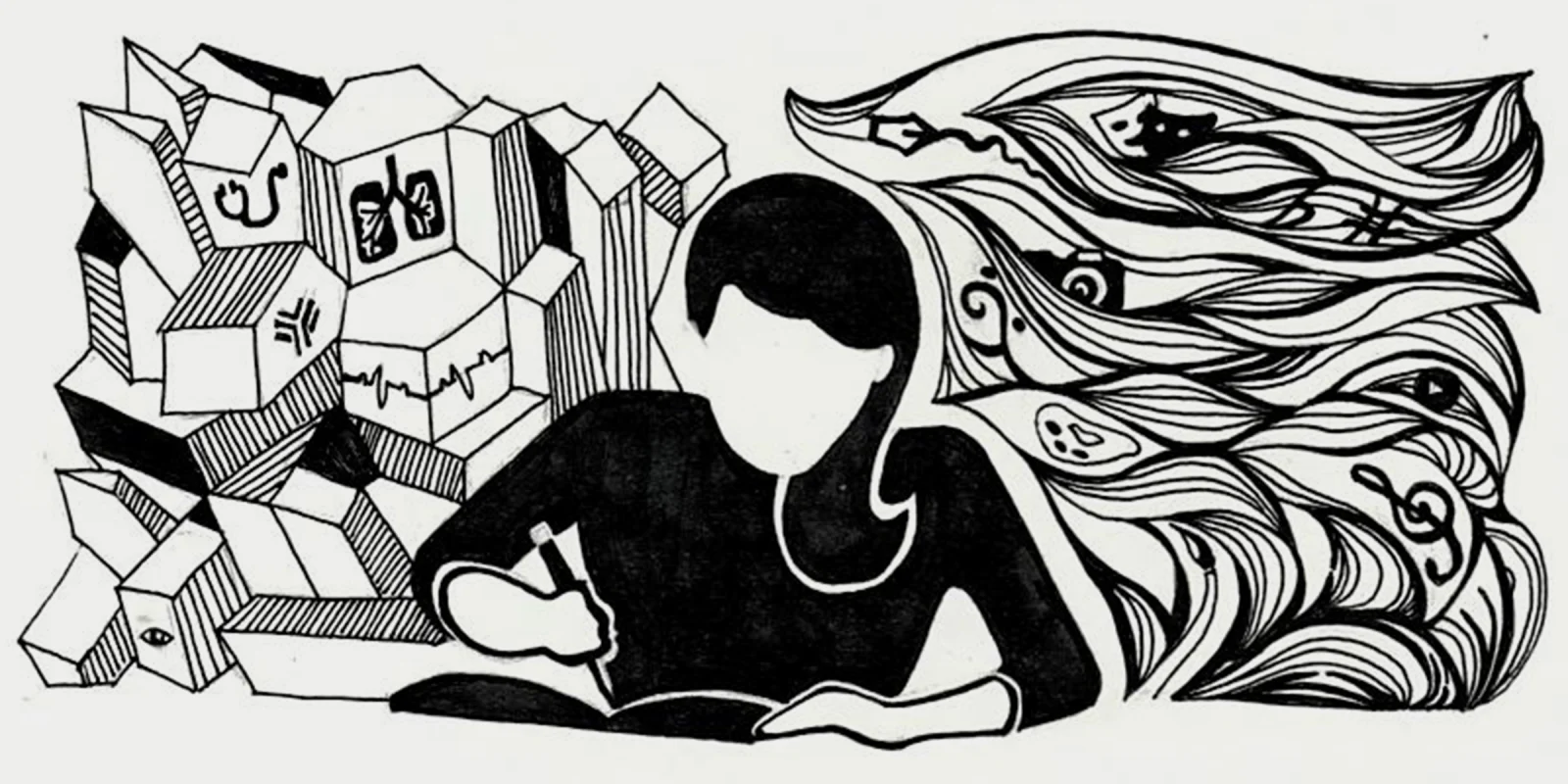My memories of the thousands of hours I spent running my fingers over piano keys, following instructions at orchestra rehearsals, and moving pencil over sketchbook during high school are murky at best. What I remember vividly is my parents waking up in the middle of the night to find me laying paint on canvas while listening to Howard Shore’s score of Middle Earth, unaware of anything except the art and music. I remember sitting in the back of the orchestra as Tchaikovsky’s 1812 roared to an exhilarating close, my face flushed like someone had just spun me around in a skating rink. Later during university, I remember pouring over 30 hours of transcripts to find a narrative thread as I wrote myself from one stepping stone to the next, trusting that the next step would appear even when I couldn’t see it. It seemed like alchemy — the fleeting moments that made the other long hours worth it.
I now realize that I was near or in a state of “flow,” defined in the 1970s by psychologist Mihály Csíkszentmihályi as “the state in which people are so involved in an activity that nothing else seems to matter” with energized focus, full involvement, and intrinsic enjoyment. It is also colloquially known as being “in the zone.” One of the best recent depictions is in Pixar’s “Soul.” In a scene toward the end of the movie, Joe Gardner sits down at his piano after finally getting his big break. Disappointed that life has not drastically changed, he starts playing while looking at objects that he and his friend 22 collected. He enters a state of flow in a moment of recognition that his craft is rewarding in itself.
Flow has traditionally been studied in and applied to creative fields like music or sports. Because it offers numerous benefits including better performance and positive affect, its applications have been increasingly expanding to include the workplace. There has been some exploration of flow within surgical specialties, but little outside the OR or within medical education. As an internal medicine resident, I was curious to ask: Where can I find flow within medicine?
Over four years of medical school and almost two years of residency, the times I have felt anything close to being near a state of flow have been while:
1) Facilitating goals of care conversations. There is one particular family meeting that stands out to me for nearing a state of flow. It fulfilled the three conditions that, according to Csíkszentmihályi, facilitate flow. Although I did not go into the meeting with an agenda, I was familiar enough with the format of these conversations to know the general structure, sense of direction, and overarching goals. I received clear and immediate feedback through both verbal and non-verbal communication from multiple family members. It was a task that seemed slightly beyond my comfort level, but I was confident that I could complete it with effort.
2) Performing procedures. Less than a handful of procedures come to mind as having some qualities of flow. Procedures most often failed due to a mismatch between perceived challenge and skill. Dialysis line placements were sometimes two or three levels above my ability. When I repeatedly missed my target or caused a hematoma, I was not able to see meaningful progress and the process became too discouraging. On the other end of the spectrum, procedures like large volume paracentesis went at a slow rate, leading to boredom and lack of full focus needed for flow. Perhaps surgical specialties experience flow more frequently because their craft is more easily visible and demonstrative with clearer delineations between right and wrong.
3) Studying independently. During residency, I have experienced two to three independent study sessions with a heightened level of concentration. I observed that: 1) I have never experienced this in the hospital or clinic. I think this highlights how much constant distraction is built into medicine’s workflow and education. 2) The sessions that succeeded were carefully designed to include methods, resources, and feedback that were personally conducive to deliberate practice. The design was almost as important as the time spent studying, but I often skipped planning because it seemed like a luxury when study time was limited.
One of the ways medicine differs from sports and creative pursuits is its focus on results over process. If I did not get to see patient outcomes, would I still find the process intrinsically valuable? Particularly in non-procedural specialties, I would argue the traditional answer is most often no. I have been taught that the quality of my history-taking, differential, diagnostics, and clinical reasoning is highly dependent on arriving at the correct diagnosis. Flow is more likely when the craft is regarded as valuable in itself. This requires a separation between process and outcome that only comes with deliberate effort in medicine. The focus on results has also created a culture of high self-consciousness that detracts from flow. I was self-aware during my goals of care conversation, but I was never self-conscious because I did not have a precepting physician judging my every move. This might be why my near-flow moments rarely involve other clinicians.
None of this erases the fact that in almost 6 years of medical training, I have never actually found a state of flow in this profession. I willingly spend 10 hours tediously attempting to write creatively in the hopes that maybe 20 minutes will be in a state of flow. I wonder if I would walk into a 14-hour workday in the hospital more enthusiastically if I knew something similar was achievable in medicine. Flow in medicine is worth exploring and promoting. Maybe it can be a strategy to improve well-being by making adjustments within the workplace instead of burdening clinicians with additional tasks outside of work. Maybe then I will be able to look back on the thousands of hours I spent in the hospital and remember a few as vividly as those enchanted late nights painting in high school.
Tell us about your experiences with flow in health care. How do you think we can better design the work environment and medical education to facilitate flow?
Joy Liu is an internal medicine resident in northern California interested in end-of-life care, global health, and public policy. She is a graduate of the Mayo Clinic Alix School of Medicine and Duke University. She is a 2021–2022 Doximity Op-Med Fellow.
Illustration by Joy Liu






